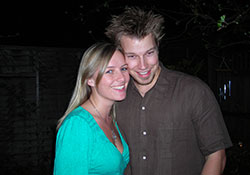Young people and reproductive health

WHO
In the European Region, there are 99 million adolescents (aged 10–19), accounting for 14% of the population. There are ways to reach and engage young people and give them accurate and individual information and advice on sexual and reproductive health, while developing their skills to deal with issues satisfactorily and responsibly. Some countries now have youth-friendly primary care drop-in centres, networking sites and special events: WHO/Europe works with many partners to share best practice and the latest evidence on what works best.
Most parents hope for healthy, fulfilling lives for their sons and daughters. Yet just as adolescents change and develop, have their first intimate relationships and develop self awareness, identity and independence, they are often denied education, information or health services that will help them to make capable, informed choices, for fear that sexual education will encourage sexual activity. Unapproachable and judgmental health care professionals, laws requiring parental consent to services for adolescents, prohibitive costs and inflexible opening hours of facilities contribute to this problem.
Adolescence is not an easy time. Young people can be vulnerable: at risk of low esteem, unwanted pregnancies, induced abortions and sexually transmitted infections. Just one raised eyebrow or unfriendly comment can deter young people from seeking help with sexual and reproductive health worries, sometimes with serious consequences. They may feel that only Internet blogs and chat rooms can help.



